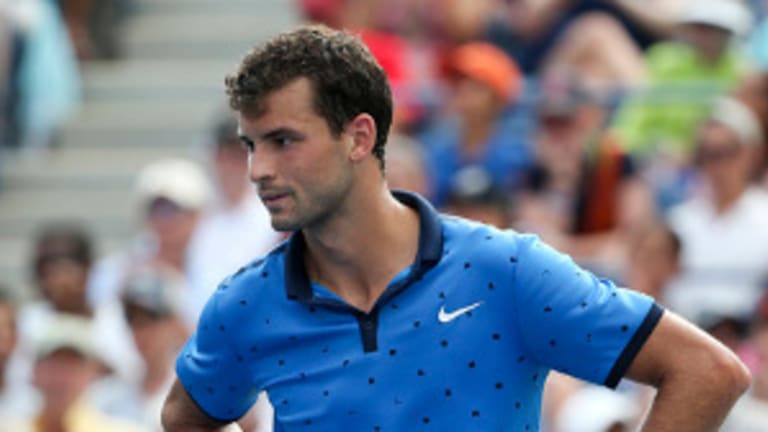“I think I hit better the ball day after day. . .I keep like simple thing in my head, so obviously is working. Then it's luck. To be honest, look at set point. I hit one of the worst drop shots I ever hit and he hit a frame. It's pure luck, you know, to haven't drop a set. So you need to have it sometime, and I hope I will have more.”—Gael Monfils, after his fourth straight-sets win of the U.S. Open, this time 7-5, 7-6 (6), 7-5 over No. 7 seed Grigor Dimitrov.
NEW YORK—One of the main themes at this U.S. Open is that Monfils, the No. 20 seed and, to many, one of the game’s major underachievers, is getting down to the business of winning after years spent establishing his credentials as a crowd-pleasing showboat.
In other words, he’s coming to grips with the hard part.
Of course, this is still Monfils, and a leopard never entirely changes its spots. So there were moments in this match when it looked like “La Monf” might run off the rails. Once, he brazenly advanced to the service line as Dimitrov prepared to serve, so disgusted with his game that he was inviting his opponent to just throw in any ball—he was only going to wave at it in passing and intentionally lose the game so he could move on to the next one.
In the second set, Monfils seemed to berate the entire Arthur Ashe Stadium crowd with a voluble stream of invective that turned out to be aimed at only himself. Monfils drank Coca-Cola on the changeovers, flaunting the conventional wisdom (and pleasing a potential sponsor?); he even tanked points.
But he also—and this is the important bit—served lethally, cracked his forehand, and changed the pace of the rallies time and again to goad Dimitrov into over-hitting.
